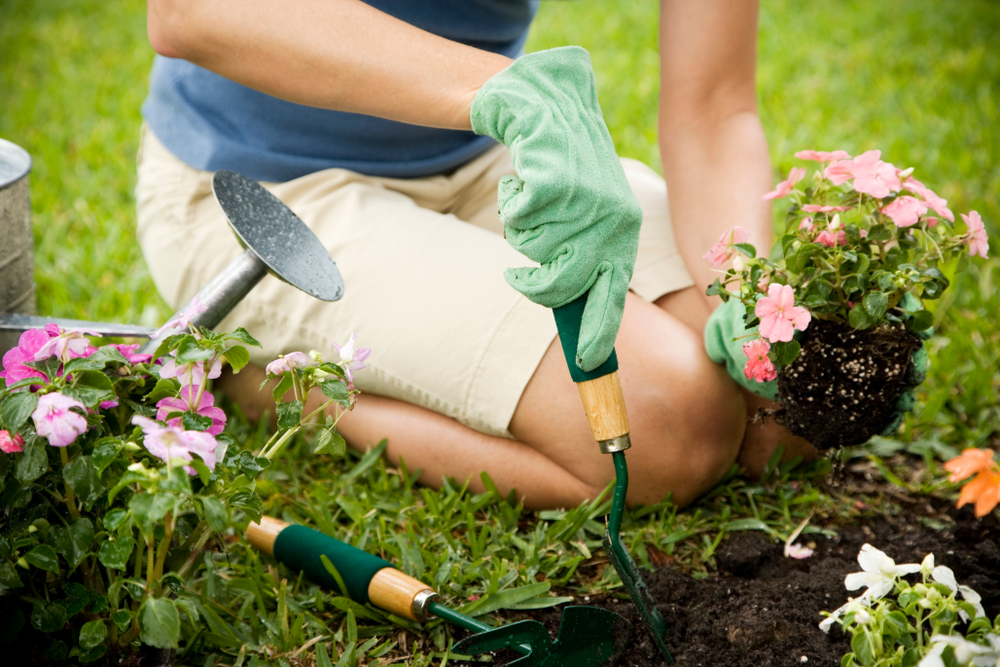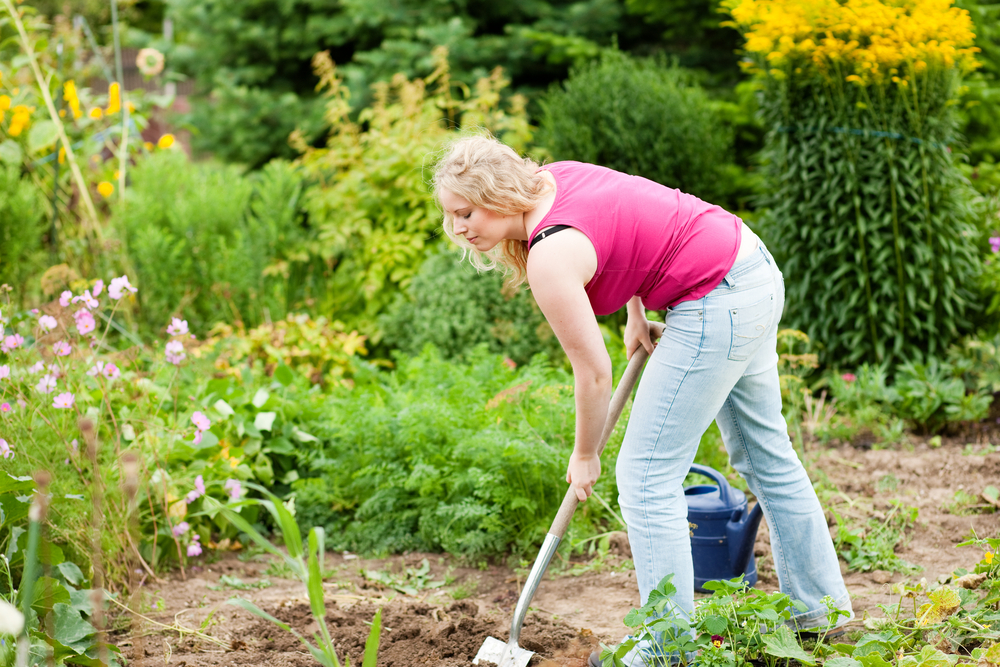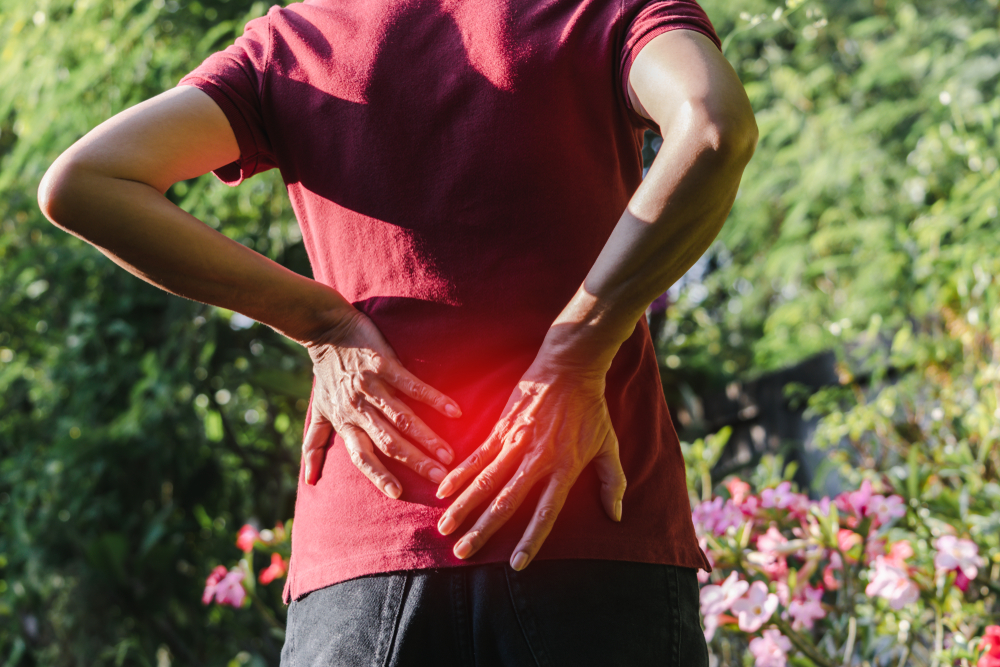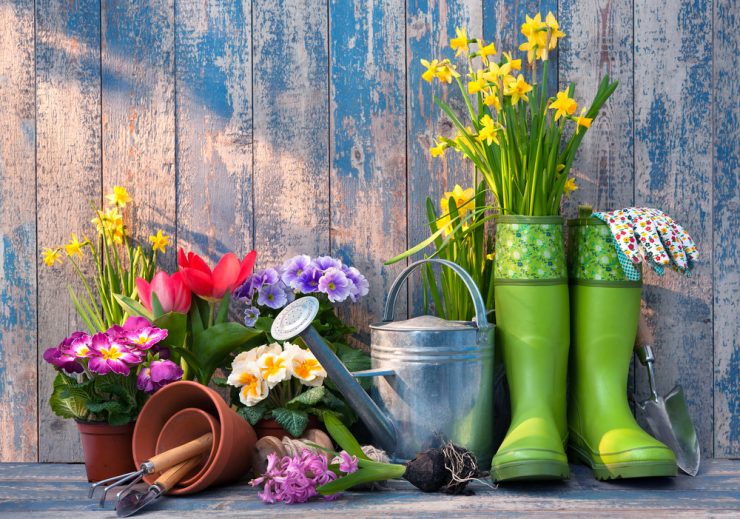Whether you tend plants in a window box, nurture pots on the patio or get stuck into your allotment or vegetable patch, gardening is good for wellbeing.
Editor Jane Garton explores the benefits and how to do it for maximum reward.
If you are lucky enough to have a garden or allotment, chances are that during lockdown you have spent more time tending your veggies and flowers than usual.
And that’s good news as studies show that gardens, gardening and green spaces have countless benefits for body and soul. In short, spending time in nature makes us feel calmer and happier.
Gardening reduces stress

Just being in natural surroundings provides the perfect antidote to stress especially in troubled times. Growing and looking after plants also instils hope and anticipation. You’re also engaging in a positive task, which stops you thinking about yourself and your troubles, which helps to give your brain a rest.
It’s great exercise

Spending an hour mowing, digging or raking, for example, uses up 200 to 300 calories depending on how vigorously you do it. It is also a great way to connect and avoid isolation and loneliness – gardeners love to chat over the garden fence or to their neighbours at the allotment. Meanwhile, joining a gardening club or community garden project is another great way to meet like-minded green-fingered people.
But what if painful or arthritic joints start to hamper your mobility? The answer is don’t give up. There are plenty of ways as well as some herbal remedies to help you stick to your plot and reap the benefits.
Herbal Help

If aches and pain persist, the herbal remedy devil’s claw may help to bring relief. So-called on account of the curved barbs on its roots, the Bushmen in the Kalahari Desert have long used devil’s claw. It has been shown to have anti-inflammatory and relaxing properties, which can help soothe nagging aches and pains as well as areas of muscular tension, making gardening less painful and more enjoyable.
Here are my top tips for staying strong and avoiding injury:

- Always warm up before you start a day in the garden or allotment. Arm, back, neck and leg stretches are good options.
- Change jobs every 20 minutes or so to avoid holding one position for too long. Go for little and often and take regular breaks. Listen to your body and you should get the balance right.
- Lift correctly (keep you back in neutral, always bending from the knees) and use your legs and abdominal muscles.
- When carrying things, spread the load by using both arms and hands. If your shoulders, wrists and elbows are playing you up it is better to make several trips, carrying a small amount each time, than struggling with a heavy load all at once.
- To prevent tennis elbow don’t grip tools too hard and keep your wrist in a neutral position, with your hand straight out.
- Keep hydrated, as dehydration can lead to increased muscle stiffness after exercise. Keep a bottle of water at your side especially if the sun is out and sip regularly.
- Try to use both sides of your body. For example, change your digging foot routinely and use both hands for gardening jobs.
- Do some post-gardening stretches, keep stretching regularly and have a warm bath to soothe any aching muscles.
This year’s National Allotment week runs from August 10th -16th to raise awareness of allotments and the role they play in helping people to live healthier lifestyles, grow their own food, develop friendships and bolster communities. This year’s theme is ‘Growing food for health and wellbeing’, a reflection of the many benefits of growing, cooking and eating your own fruit and vegetables. To find out more visit their website.
























Add comment